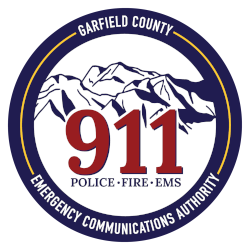
WHEN TO CALL 9-1-1
The 9-1-1 emergency number is for in-progress crimes and situations that pose immediate danger to life or property. Calls like this could include:
- Burglary in progress
- Something on fire
- A fight or assault in progress
- A medical emergency
- An accident where people are injured
9-1-1 is used to save a life, report a fire, or stop a crime.
When you call 9-1-1 you will be asked a variety of questions to determine the nature of your call and the response that will be required. Please try to remain calm and answer all of the questions you are asked. Answering the questions does not delay the response of the help you need; while the call taker asks you questions, another dispatcher is already telling the officers or fire department about your emergency. The more information we have the better prepared the responders are to help you.
As long as it is safe to do so, please stay on the line until the call taker tells you that it’s okay to hang up.
WHEN TO TEXT 9-1-1
- You are not safe: calling would alert another person and/or put you at greater risk
- Poor cellular service: you can often send a text message when service is not sufficient enough to make a voice call
- Your phone battery is very low: texting uses significantly less battery power than voice calls so texting when your battery is very low may allow for more information exchange
- You have a hearing or speech impairment: we still have TTY technology however text messaging has become much more commonly used
- You are experiencing a medical emergency and are unable to speak
QUESTIONS TO EXPECT
WHEN YOU CALL 9-1-1
- Where is your emergency? This is the first and most important question – we can’t help you if we don’t know where to send it.
- What is happening?
- What is your name and telephone number?
- A description of any possible suspects and vehicles involved and a direction of travel if they leave the scene. Remember, never put yourself in any danger to get this information.
- Medical emergencies. Our call takers are trained to ask specific questions in relation to medical calls, and to give pre-arrival instructions to help the patient until an ambulance can get to you.
TIPS AND WHAT TO EXPECT
WHEN YOU TEXT 9-1-1
- Silence your phone if needed for safety purposes
- Provide the location and type of emergency
- Be aware of auto-correct, especially when giving addresses
- Keep messages short and simple
- Use full words, no abbreviations, slang, or emojis
- Always keep your safety in mind first
- Answer all questions as timely as possible; help is coming and we want them to be as prepared as possible when they arrive
If you accidentally dial 9-1-1, please stay on the line and tell the call taker that it was a mistake. If you are calling from a landline phone, the call taker will want to verify the information that is shown on the screen (name, address, and call back number). If you hang up the phone before talking to the call taker, valuable time is taken up calling you back and ensuring there is no emergency.
For non-emergency calls, you can reach the dispatch center 24 hours a day at 970-625-8095.
